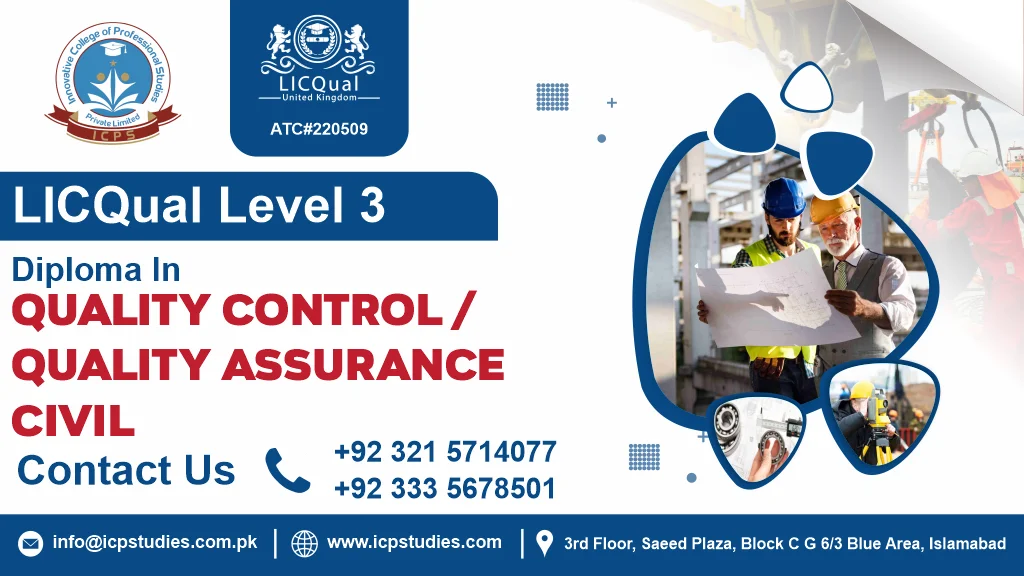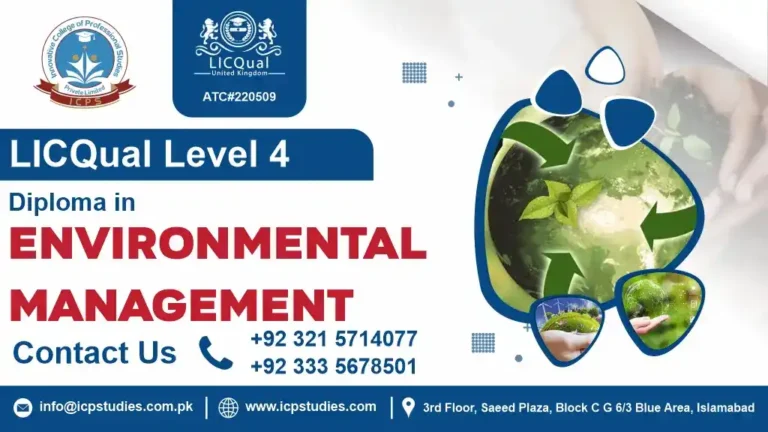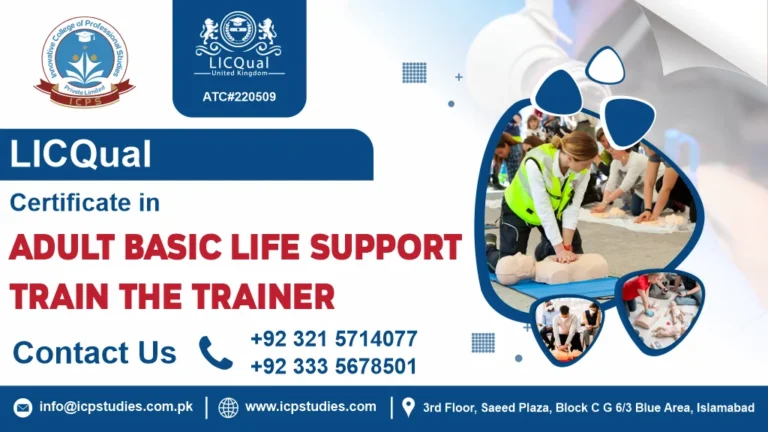The key to unlocking a green future for you and the planet
LICQual Level 3 Diploma in Quality Control/Quality Assurance Civil, In the dynamic field of civil engineering, ensuring the highest standards of quality is paramount for the success and sustainability of any project. This comprehensive diploma program is meticulously designed to equip individuals with the essential skills, knowledge, and industry insights needed to excel in the realm of quality control and assurance within the civil engineering domain.
As we navigate through this program, participants will delve into the intricacies of quality management, exploring advanced techniques and methodologies that are specifically tailored to the unique challenges presented by civil engineering projects. Whether you are a seasoned professional seeking to enhance your expertise or a newcomer aspiring to make a mark in the industry, this diploma offers a transformative learning experience that combines theoretical foundations with practical applications.
Join us on a journey where quality becomes not just a standard but a mindset, and where participants emerge as proficient and confident professionals ready to contribute to the success of civil engineering projects through effective quality control and assurance practices.
Don’t wait – enroll today and take the first step towards a brighter future in Quality Control. Contact us today to learn more about our Level 3 Diploma in Quality Control/Quality Assurance Civil and how it can help you achieve your professional goals.
All About LICQual level 3 Diploma in Quality Control / Quality Assurance Civil
Course Overview
LICQual Level 3 Diploma in Quality Control/Quality Assurance (Civil) course—a gateway to mastering the essential principles and practices of quality management in the field of civil engineering!
In this comprehensive program, participants will embark on a transformative journey to acquire the knowledge, skills, and competencies necessary to excel in quality control and quality assurance within the realm of civil engineering projects. Whether you’re a budding professional looking to kickstart your career or a seasoned practitioner seeking to enhance your expertise, this diploma offers a dynamic blend of theoretical insights and practical applications tailored to meet the demands of the industry.
Throughout the course, participants will delve into key concepts and methodologies underpinning quality management in civil engineering, exploring topics such as structural integrity assessment, materials testing, compliance with regulatory standards, and implementation of quality assurance protocols. Through a series of engaging lectures, interactive workshops, and hands-on exercises, learners will gain a deep understanding of how to effectively monitor, evaluate, and improve the quality of construction projects from inception to completion.
One of the distinguishing features of the LICQual Level 3 Diploma is its emphasis on real-world relevance and applicability. Participants will have the opportunity to apply their learning in practical scenarios, tackling authentic challenges commonly encountered in civil engineering projects. By engaging with case studies, site visits, and industry simulations, participants will develop the critical thinking, problem-solving, and decision-making skills essential for success in the field.
Furthermore, the course fosters a collaborative learning environment where participants can exchange ideas, share experiences, and network with industry professionals. With access to expert instructors and mentors who bring a wealth of practical insights and industry experience, participants will receive personalized guidance and support throughout their learning journey.
Upon successful completion of the LICQual Level 3 Diploma in Quality Control/Quality Assurance (Civil), participants will emerge as competent and confident professionals equipped to make a positive impact in the world of civil engineering. Whether you aspire to pursue a career as a quality control inspector, QA/QC engineer, construction manager, or quality assurance specialist, this diploma will serve as a catalyst for your professional growth and advancement.
Mandatory Units
- Introduction to Quality Control and Quality Assurance in Civil Engineering
- Quality Management Systems and Standards
- Quality Planning and Documentation
- Quality Inspection and Testing in Civil Projects
- Statistical Process Control and Quality Improvement
- Non-Conformity Management and Corrective Actions
- Health, Safety, and Environment in QA/QC
- Implementing Technology for QA/QC in Civil Engineering
To enroll in the LICQual Level 3 Diploma in Quality Control / Quality Assurance (Civil), candidates should meet the following entry requirements:
- Educational Qualifications:
- A minimum of a Level 2 qualification in a relevant field, such as construction, engineering, or quality management.
- Alternatively, candidates should have at least a high school diploma or equivalent, with a focus on mathematics and science.
- Professional Experience:
- While not mandatory, some experience in the construction or civil engineering sector is highly beneficial. This could include roles related to project management, quality control, or site supervision.
- Age Requirement:
- Candidates should be at least 18 years old at the time of enrollment.
- Language Proficiency:
- Proficiency in English is required, as all course materials and assessments will be conducted in English. Non-native speakers may be asked to provide evidence of their English language skills (e.g., IELTS or equivalent).
- Motivation and Commitment:
- A strong interest in quality control and assurance within the civil engineering sector is essential. Candidates should demonstrate a commitment to improving their skills and knowledge in this area.
- Technical Skills:
- Basic computer skills are recommended for engaging with digital course materials and assessments.
Meeting these entry requirements will help ensure that candidates are prepared for the challenges of the LICQual Level 3 Diploma in Quality Control / Quality Assurance (Civil) program. This qualification is an excellent step for those looking to advance their careers in quality management within the civil engineering industry.
The LICQual Level 3 Diploma in Quality Control / Quality Assurance (Civil) is tailored for a diverse range of individuals looking to advance their careers in the civil engineering and construction sectors. This course is ideal for:
- Aspiring Quality Control Professionals:
- Individuals looking to start a career in quality management and assurance within the civil engineering field.
- Current Industry Workers:
- Professionals already working in construction or engineering who want to enhance their knowledge and skills in quality control and assurance practices.
- Project Managers and Supervisors:
- Those responsible for overseeing construction projects and ensuring adherence to quality standards.
- Site Engineers and Technicians:
- Individuals engaged in hands-on roles within civil projects who wish to deepen their understanding of quality management processes.
- Students and Recent Graduates:
- Those who have completed relevant qualifications and are seeking a recognized diploma to improve their employability and career prospects in the engineering sector.
- Quality Assurance Managers:
- Professionals looking to formalize their expertise and adopt best practices in quality management to enhance project outcomes.
- Regulatory and Compliance Officers:
- Individuals tasked with ensuring that construction projects comply with industry regulations and quality standards.
The LICQual Level 3 Diploma in Quality Control / Quality Assurance (Civil) is designed for anyone committed to improving quality practices in the civil engineering industry. Whether you are new to the field or looking to advance your existing skills, this course provides valuable knowledge and training to help you excel in quality management roles.
Ideal Candidate
This course is ideal for individuals at various stages of their career within the civil engineering field who are seeking to enhance their expertise in quality control and quality assurance (QA/QC). Specifically, it caters to:
- Students and Graduates: Those pursuing or recently graduated with degrees in civil engineering or related disciplines who wish to supplement their academic knowledge with practical skills and industry-specific insights.
- Entry-Level Professionals: Individuals who are new to the civil engineering industry and seek to establish a strong foundation in quality management practices to excel in their roles.
- Experienced Engineers: Seasoned civil engineers who aim to deepen their understanding of QA/QC principles, stay updated on industry standards and best practices, and advance their careers by specializing in quality management.
- Construction Managers and Supervisors: Professionals responsible for overseeing construction projects who want to strengthen their ability to ensure compliance with quality standards, optimize processes, and mitigate risks.
- Quality Control Inspectors: Individuals involved in conducting inspections, tests, and audits on construction sites who aim to enhance their skills in identifying non-conformities, implementing corrective actions, and improving quality performance.
- QA/QC Engineers and Specialists: Professionals specializing in quality management within civil engineering projects who seek to expand their knowledge, learn new methodologies, and stay abreast of emerging trends and technologies in the field.
- Consultants and Contractors: Those working independently or within consulting firms, contracting companies, or governmental agencies who wish to enhance their capabilities in delivering high-quality civil engineering projects and services to clients.
- Anyone Interested in Quality Management in Civil Engineering: Individuals with a general interest in quality management principles and their application in civil engineering projects, regardless of their specific job role or background.
Overall, this course is designed to accommodate a diverse range of participants with varying levels of experience and objectives, all united by their shared interest in mastering quality control and quality assurance within the context of civil engineering.
FAQs Related to LICQual level 3 Diploma in Quality Control / Quality Assurance Civil







